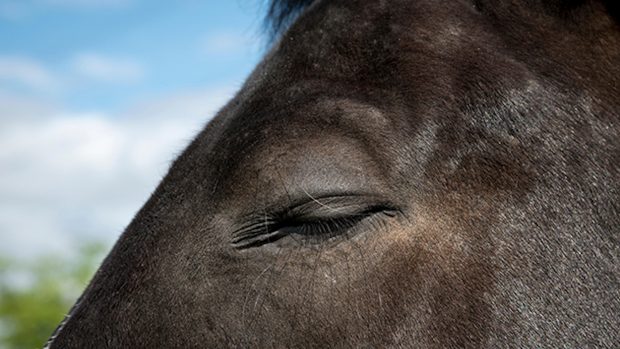The Blue Cross is launching a new campaign to reduce the number of horses injured in unsafe trailers
Leading animal welfare charity, The Blue Cross, is launching a campaign to highlight the dangers facing horses travelling in poorly maintained and dangerous trailers throughout the UK.
The “Safe Trailer” campaign, launched at this week’s Blenheim Horse Trials (5-8 September), will urge owners to carry out a seriesof vital yet simple trailer checks before travelling their horses to reduce the number of accidents caused by poor maintenance.
Common problems include poorly maintained trailer floors collapsing under the horse’s weight while the trailer is in motion, causing massive trauma to the animal’s limbs. Other serious accidents involving trailers can be caused by poor maintenance of brakes, wheel bearings, hitch and lights.
Robert Webb-Bowen, director of equine welfare atThe Blue Cross, says: “Fatal injuries to horses caused by unsafe trailer transport are more common than most owners realise.”
This belief is endorsed by leading equine vet Andy Bathe, who says: “I see at least two serious horse injuries per year caused by travelling. I would expect this figure to be similar for equine vets around the country, which would roughly equate to a national figure of around 1000 injuries resulting from travel every year.”
Trailer safety leaflet
The Blue Cross is offering free practical advice and guidance on trailer safety and maintenance in the form of an easy-reference leaflet produced in conjunction with towing expert, John Henderson.
Robert Webb-Bowen says: “Unlike other countries in Europe, the UK has no trailer MOT test, so making sure your own trailer is safe and legal is entirely the owner’s responsibility. Yet many people remain unaware ofhow to keep their trailer in safe working order. Our leaflet will play a vital role in making horse owners aware of the necessary checks.”
The leaflet explains how to undertake vital checks to ensure your trailer is safe and roadworthy, and includes a checklist of jobs to do prior to every trip, every three months and six months, at 3,000 miles and every two years. It also includes a list of other useful publications on trailer maintenance.
According to Dr Natalie Waran BSc PhD of the Royal (Dick) School of Veterinary Studies, Edinburgh University, who has carried out research on transport stress in horses, trailer maintenance should be a priority to all horse owners with trailers.
“The consequences oftransporting your horse in an unsafe trailer should be of serious concern to owners. At the very least your horse will be exposed to an extremely frightening and stressful experience and at the worst he could be seriously injured or die,” says Natalie.
To find out more visit www.bluecross.org.uk
Read more about trailers:





